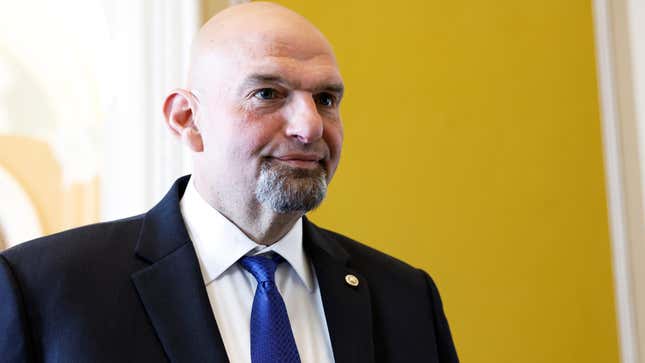John Fetterman Tears Up in Senate Hearing Recounting Insults During Stroke Recovery
The senator, who had a stroke last year, talked about how he's been "ridiculed and made fun of" for his struggles with speech and communication.
Politics

In a Thursday hearing on disability access held by the Senate Special Committee on Aging, Sen. John Fetterman (D-Penn.) teared up while recounting his experiences after a stroke last year impacted his ability to process language. While speaking before the committee, Fetterman held up his phone and showed the transcription app he uses, explaining that it “allows me to fully participate in this meeting and conversations with my children and interacting with my staff.”
“I had a stroke about 18 months ago. I have lost my ability to fully process language,” Fetterman said. “I like to think I was an empathetic person, truly. But since that happened, I’ve raised to a whole different kind of level.”
-

-

-

-

-

-

-

-

-

-

-

-

-

-

-

-

-

-

-

-

-

-

-

-

-

-

-

-

-

-

-

-

-

-

-

-

-

-

-

-








































